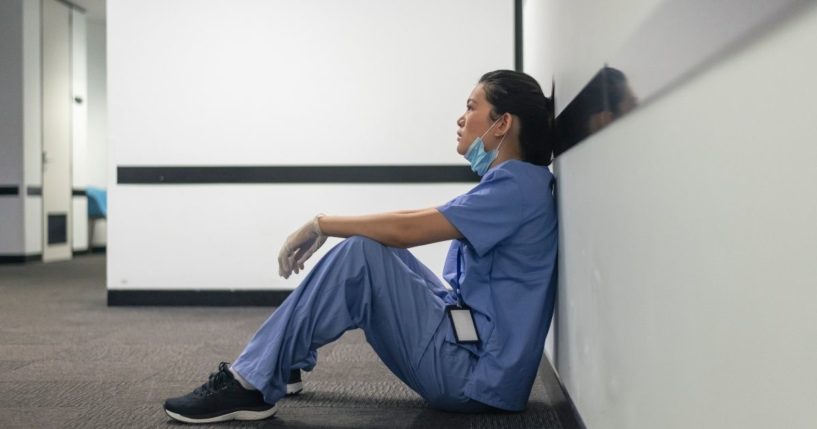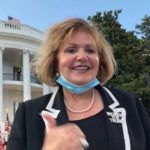
Op-Ed: Our Health Care Emergency Started Well Before COVID, And It's About to Get Much Worse
The U.S. is in the midst of a health care worker shortage that has been most acutely felt among nursing staffs.
While the upheaval caused by the public health response to the coronavirus pandemic worsened the issue, its root cause goes back several years and unfortunately will not subside as the rest of the country returns to normal life.
A whole-of-government and -industry response will be required to solve this problem.
The passage of the Affordable Care Act in 2010 is in many ways what kicked off the current crisis.
By altering our health care system requirements and allowing many more individuals to receive government- or taxpayer-subsidized health insurance (Medicaid), demand for such services significantly increased around the country. Several attempts to repeal Obamacare have since failed and, as a result, America will likely be left to grapple with the consequences of the legislation for years to come.
At the time Obamacare was passed, America’s population rapidly started to age.
The baby boomer generation has gotten older, and the number of new nurses entering the health care system has simply not been able to keep up with this surge of patients. It was estimated that in 2020, 71 million Americans were 65 or older and half of this population, according to the Centers for Disease Control and Prevention, had two or more chronic health conditions. With such an influx of both new as well as sicker patients, it is easy to see how the health care workforce is facing serious systemic headwinds.
Early retirement and worker burnout have further exacerbated health care staff shortages.
The median age of registered nurses in this country is 52, and the Bureau of Labor Statistics projects that approximately 500,000 seasoned nurses will retire or leave the profession by the end of 2022. The anticipated shortfall of 1.1 million nurses nationwide will greatly reduce the number of experienced professionals qualified to train and educate new nurses to take their place, further contributing to staffing shortages.
Unions around the country have accelerated the crisis by sowing discord among their members and requiring them to participate in mandatory walkouts and strikes. For instance, an organized strike in November consisting of 32,000 health care workers in Southern California affected 366 facilities at a point in the coronavirus crisis when they were needed most.
Nurses and other health care workers take an oath to protect and serve their patients. However, their unions are often focused on agendas that run contrary to that oath. Instead of working with health care facilities to help find ways to keep their employees safe, union leaders are trying to leverage the pandemic to empower themselves.
Case in point: Their lobbying against right-to-work laws will do nothing to enhance worker safety but could help stall the precipitous drop in membership unions have experienced since the 1980s. At the end of the day, it is all about the union’s bottom line and not what is in the best interests of those they are supposed to represent.
We all can attest to the hard work and sacrifice of our health care heroes, and they deserve everything we can give them. But unreasonable demands made by unions distract from the immediate efforts that should be made to improve our health care system and encourage more nurses to enter the field.
The fallout from the nursing shortages leads to burnout, longer wait times for patients and medication errors and fatalities. Nurses and hospitals are feeling the strain of demands that are difficult to meet and need to be supported by policymakers as well as the communities they serve.
This is simply not the time for health care unions to be playing politics with patients’ lives while contributing to an overworked and overstressed nursing workforce. We are well past the point of petty bickering and self-interested maneuvering.
Instead, we must focus on working together to promote the well-being of our health care delivery system and, ultimately, the patients whom it serves.
The views expressed in this opinion article are those of their author and are not necessarily either shared or endorsed by the owners of this website. If you are interested in contributing an Op-Ed to The Western Journal, you can learn about our submission guidelines and process here.
Truth and Accuracy
We are committed to truth and accuracy in all of our journalism. Read our editorial standards.
Advertise with The Western Journal and reach millions of highly engaged readers, while supporting our work. Advertise Today.












